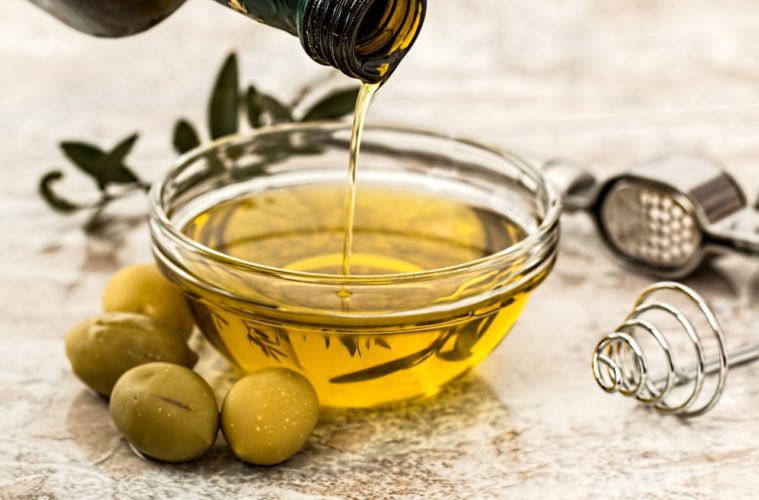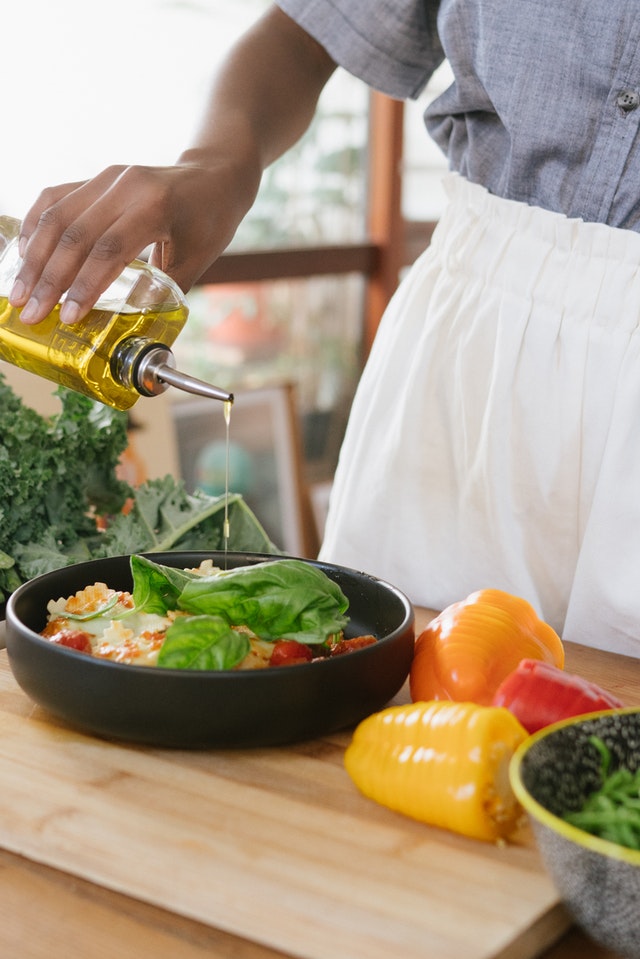Olive Oil | When we go to the supermarkets, we are often overwhelmed by the array of products and brands that are offered, and when we think we are choosing the best, often we just have been sleep-walked into buying a product that we think it’s the best, because of the packaging, the price, the position on the shelf, and the amount of advertisement that the product has been granted.
When it’s about olive oil, the confusion is even bigger, as we are faced with even more choices: extra virgin, virgin, fruity, light, mild, blended, pure… what does it all mean? Is there any difference? What should you buy? Which one is the richer in antioxidants?
The answer to these questions is extra-virgin olive oil.
But, what is extra virgin olive oil? And why is it better than the others?
Extra-virgin olive oil is the oil first extracted from the cold pressing of the olives. Virgin olive oil comes from the second pressing, olive oil from the third. Extra-virgin olive oil is richer in antioxidants and vitamins than the other qualities. However, not all the extra-virgin olive oils are equal, and some are definitely not worth the price attached to it. So, how to choose the best one? I will list three do’s and three don’ts to help you choose the best product.
Olive Oil | Three don’ts
Do not think that by buying your oil in Italy or in an Italian delicatessen, you get the real deal.
Often, big manufacturers mix extra-virgin olive oil with lower quality oil produced in North Africa, where the quality checks are not as stringent, and therefore the cold extraction is not guaranteed. This practice has been dubbed, in Italy, extra-virgin olive oil mafia.
Do not assume that, by buying a big well-known brand you are guaranteed the best quality.
This directly links to the point above: big brands mean big corporations, which often equals attention to profit, not to quality. They want to make the maximum profit with minimum cost, and very likely they are the ones buying the cheapest, lower quality oil they can find.
Do not believe that by paying more you always buy good quality.
Again, it’s all down to the honesty of the producer: I have bought £10 bottles of extra-virgin olive oil, just to feel cheated and robbed when I tasted it. Then once I bought a £2 bottle of extra-virgin olive oil from LIDL (didn’t expect anything from it) and found out that the quality is better than many brands found in mainstream supermarkets.
“Big brands mean big corporations, which often equals attention to profit, not to quality.”
 The three do’s
The three do’s
Do pay attention to the colour.
Extra-virgin olive oils vary from a light yellow colour to a deep gold-green colour. The difference is down to to the nutrient contained: deeper darker greenish shades mean that the oil is fresher and richer in chlorophyll. Dark yellow oils are older, and the chlorophyll is in lesser quantity, whereas carotenoids are more abundant. Light yellow olive oils are highly processed and should be avoided. The best extra-virgin olive oils are the ones with a greenish colour.
Do take the time to check the scent.
Extra-virgin olive oil has a strong distinctive smell: very earthy and grassy, and very pungent. If it has a mild and delicate scent, then don’t buy it again.
Do taste the difference.
This is possibly the best test to ensure that your extra-virgin olive oil is of the best quality. Cold-pressed extra-virgin olive oil has a slightly bitter aftertaste, and it makes the back of your throat prickle. This is due to the antioxidants contained in the oil: the more intense the scratch at the back of your throat, the richer the oil is in antioxidants (especially squalene). You might find extra-virgin olive oils that tick the two boxes above, but if they don’t prickle, then they have been heat-extracted, which makes them pointless.
A final thought
Obviously, you cannot check all this when you are buying in the stores, you will have to buy and taste at home until you find the one that ticks all the boxes. Don’t bother buying oils sold in transparent glass bottles, as the light will have oxidated them.
Of course, once you find your perfect extra-virgin olive oil, you will have to use it only raw and don’t cook with it, as the heat will destroy all the benefits. So, for everyday cooking, just use a decent quality, but don’t go for the expensive ones. Olive oil is not suitable for frying, as it has a low fuming point and it will burn very quickly. Better use sunflower oil or other oils better suited for this kind of cooking method.



 The three do’s
The three do’s